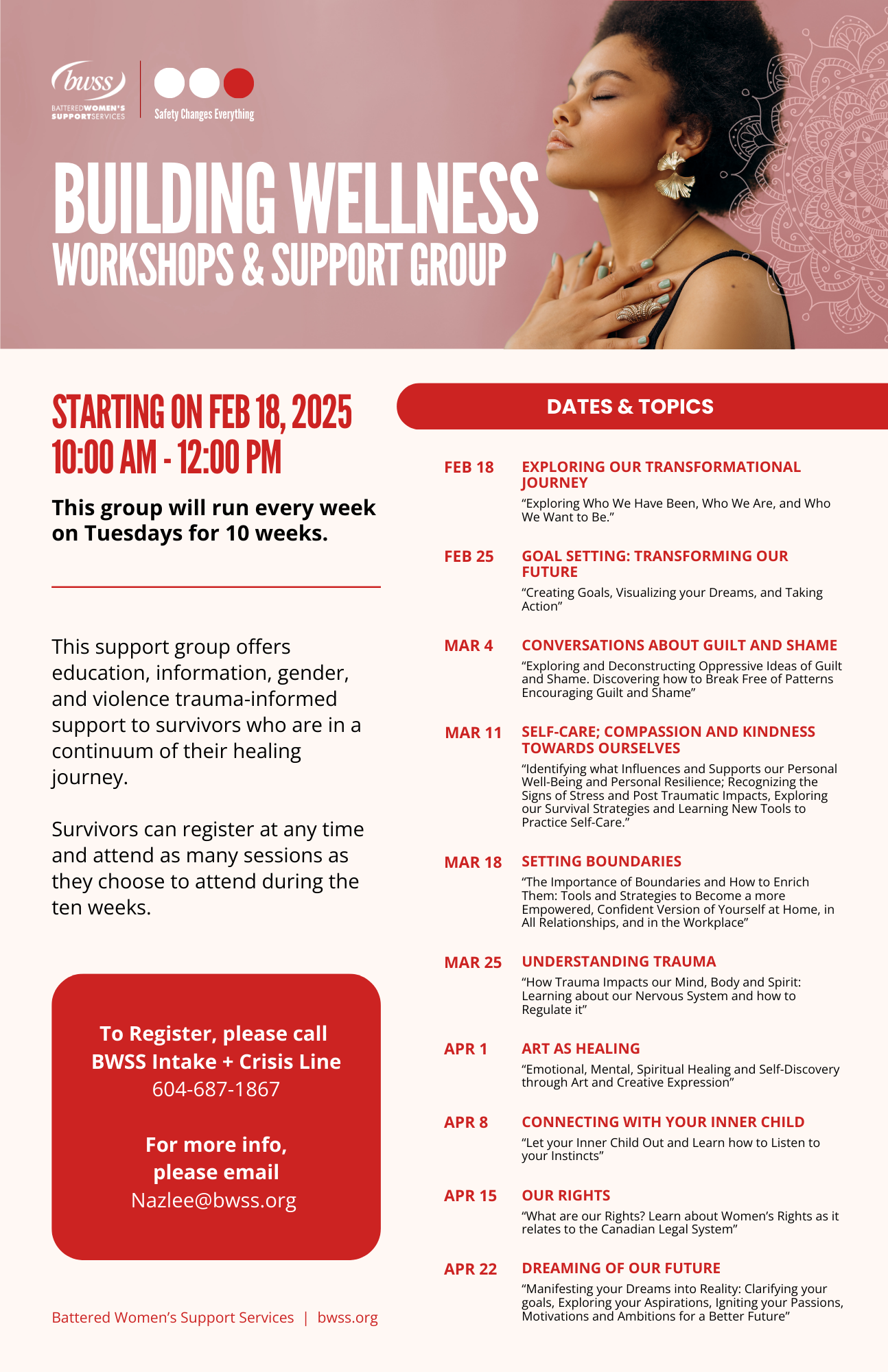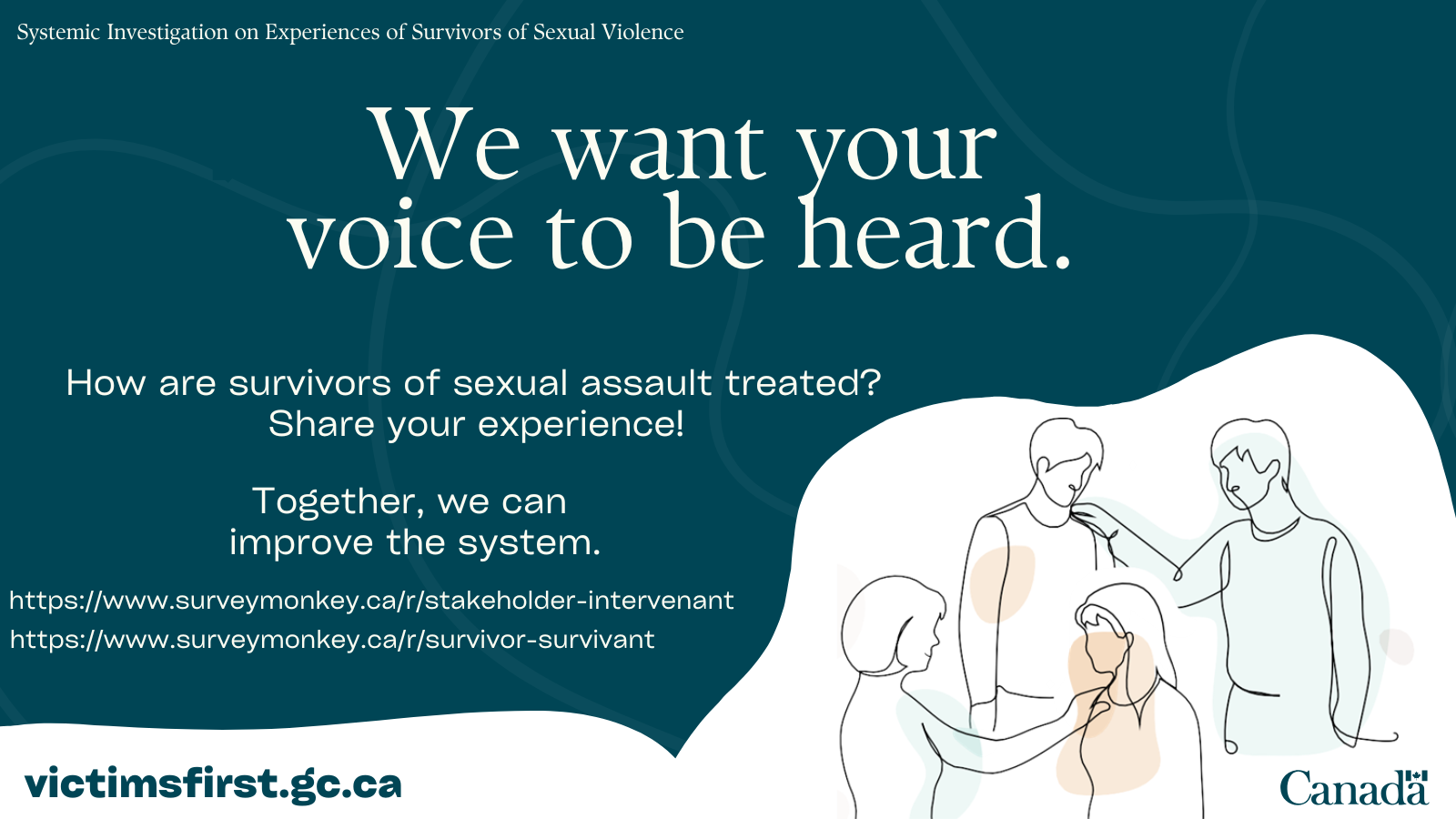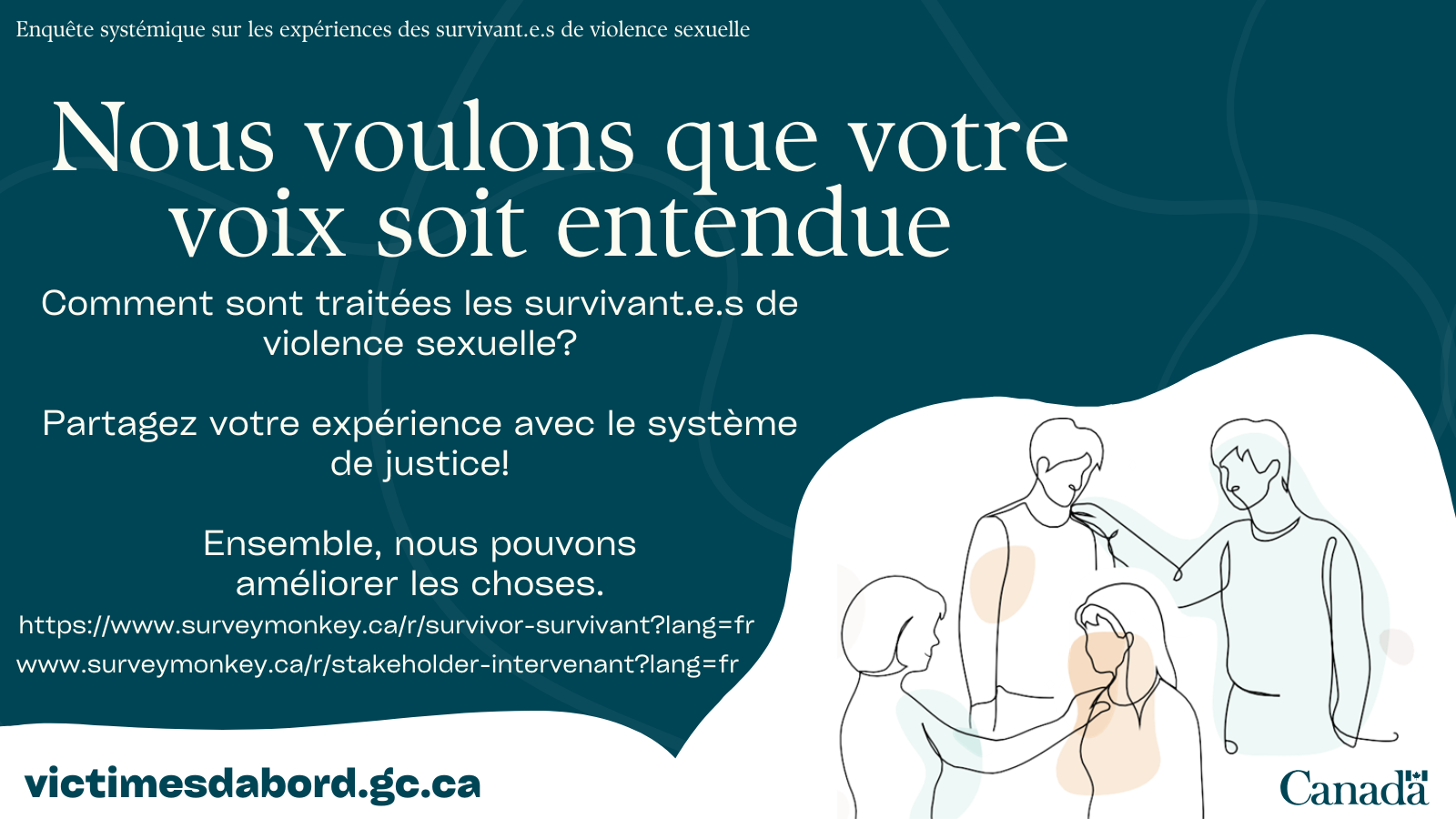Building Wellness After Surviving Violence
Wellness is a holistic state of well-being that encompasses physical, mental, emotional, and spiritual health, fostering resilience, self-care, and personal growth.
Healing is a journey, and wellness is about more than getting through each day—it’s about rediscovering yourself and reclaiming power over your life. It means having space to reflect, set goals, and build confidence. But what does that actually look like?
BUILDING WELLNESS WORKSHOP & SUPPORT GROUP
At BWSS, we recognize that wellness is essential to the healing process, which is why we are launching a new support group and workshop that offers education, information, gender, and violence trauma-informed support to survivors who are in a continuum of their healing journey.
Starting on Feb 18, 2025 – Tuesdays 10:00 AM – 12:00 PM.
Here are 10 Wellness Practices:
1. Self-Discovery
Building wellness after surviving violence starts with rediscovering who you are. This process involves reflecting on your past experiences, acknowledging your survival, and reconnecting with the parts of yourself that may have been lost or suppressed. Journaling, meditation, or talking to a trusted person can help you explore your identity and redefine your path forward.
FEB 18 – Exploring our Transformational Journey (Session One)
“Exploring Who We Have Been, Who We Are, and Who We Want to Be.”
2. Goal-Setting
To rebuild wellness, begin by setting personal goals that reflect what you truly want for your life. Start small by identifying your short-term aspirations—whether it’s learning a new skill or creating a daily routine—and gradually work toward larger dreams. Writing them down, breaking them into manageable steps, and celebrating progress will empower you to take control of your future.
FEB 25 – Goal Setting: Transforming our Future (Session Two)
“Creating Goals, Visualizing your Dreams, and Taking Action”
3. Releasing Guilt & Shame
After surviving violence, releasing guilt and shame is key to healing. Challenge negative self-talk and recognize that your survival is not something to be ashamed of. Engage in practices like self-compassion exercises, therapy, or group support, where you can learn to embrace your humanity and let go of unearned guilt or shame.
MAR 4 – Conversations about Guilt and Shame (Session Three)
“Exploring and Deconstructing Oppressive Ideas of Guilt and Shame. Discovering how to Break Free of Patterns Encouraging Guilt and Shame”
4. Practicing Self-Care
Self-care is vital for healing, and it begins with acknowledging your needs. Make time for activities that nourish you, whether it’s a quiet walk, a warm bath, or reading a book that brings you peace. Building wellness means creating space for rest and learning to listen to your body and mind when they need care or restoration.
MAR 11 – Self-Care; Compassion and Kindness Towards Ourselves (Session Four)
“Identifying what Influences and Supports our Personal Well-Being and Personal Resilience; Recognizing the Signs of Stress and Post Traumatic Impacts, Exploring our Survival Strategies and Learning New Tools to Practice Self-Care.”
5. Setting Boundaries
Setting boundaries is a powerful way to protect your peace and rebuild wellness. Start by identifying your emotional, physical, and mental limits, then practice communicating those limits with confidence, whether with family, friends, or colleagues. Remember, setting boundaries isn’t selfish—it’s a way to honour yourself and your healing process.
MAR 18 – Setting Boundaries (Session Five)
“The Importance of Boundaries and How to Enrich Them: Tools and Strategies to Become a more Empowered, Confident Version of Yourself at Home, in All Relationships, and in the Workplace”
6. Understanding Trauma
Healing from trauma requires understanding how it has affected your mind, body, and emotions. Educate yourself about trauma’s impact and explore grounding techniques or therapy options that help regulate your nervous system. Knowing how trauma affects you can empower you to take steps to manage triggers and foster emotional balance as you heal.
MAR 25 – Understanding Trauma (Session Six)
“How Trauma Impacts our Mind, Body and Spirit: Learning about our Nervous System and how to Regulate it”
7. Healing Through Art
Art can be a transformative tool for processing emotions and reclaiming your voice. Expressing yourself through creative outlets like drawing, painting, writing, or dancing can help release pent-up feelings and provide insight into your healing journey. Allow yourself the freedom to create without judgment—art helps heal in ways words sometimes cannot.
APR 1 – Art as Healing (Session Seven)
“Emotional, Mental, Spiritual Healing and Self-Discovery through Art and Creative Expression”
8. Connecting With Your Inner Child
Healing involves reconnecting with the joyful, instinctual parts of yourself. Spend time exploring activities that bring you joy, playfulness, and curiosity—like colouring, singing, or simply being in nature. Listening to your inner child allows you to rediscover trust, innocence, and the joy of living fully in the present moment.
APR 8 – Connecting With Your Inner Child (Session Eight)
“Let your Inner Child Out and Learn how to Listen to your Instincts”
9. Knowing Your Rights
Building wellness means knowing your rights and feeling empowered to assert them. Take time to educate yourself about legal protections available to you, whether it’s understanding your rights in a relationship or your access to services as a survivor of violence. Reach out to organizations, legal advisors, or support groups to help navigate the systems that affect your well-being.
APR 15 – Our Rights (Session Nine)
“What are our Rights? Learn about Women’s Rights as it relates to the Canadian Legal System”
10. Envisioning the Future
After surviving violence, it’s important to dream and visualize the life you want to create. Start by identifying what a healthy, fulfilling life looks like for you—this may involve exploring career paths, relationships, or personal passions. Through affirmations, vision boards, or goal-setting, begin creating a roadmap for your future that reflects your true desires.
APR 22 – Dreaming of Our Future (Session Ten)
“Manifesting your Dreams into Reality: Clarifying your goals, Exploring your Aspirations, Igniting your Passions, Motivations and Ambitions for a Better Future”
You Are Not Alone
These steps are about moving forward with intention and care, at your own pace. Each action you take supports you in taking back your power, embracing your worth, and living a life that reflects your dreams and safety. You are not alone—BWSS is here to support you every step of the way. Take your time, and remember that healing is a journey, not a race.
Sign up for the Workshop & Support Group
Survivors can register at any time and attend as many sessions as they choose to attend during the ten weeks.
To register, please call BWSS Intake + Crisis Line (604-687-1867), and for more info, please email Nazlee@bwss.org.

You are not alone.
If you or someone you love is in need of support, please contact the Battered Women’s Support Services Crisis Line:
Call toll-free: 1-855-687-1868 Metro Vancouver: 604-687-1867 Email: EndingViolence@bwss.org









